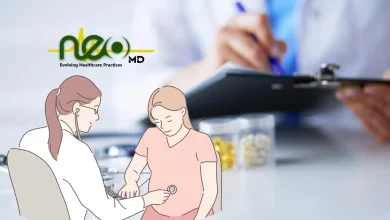
Guide To Primary Care Practitioners (PCP), Family Doctors, And Internists
There are many fields and designations in the medical industry that may be difficult to comprehend. For instance, you may find family doctors, take primary care practitioners (PCPs), and internal Medicine Doctor in Michigan.
These doctors handle patients in many of the same areas. However, being aware of their differences can enable you to choose the one who is best for you and your family.
What is a primary care doctor?
Your primary care physician (PCP) is a medical professional who helps in the management of your health. When you have a non-emergency medical concern or health issue, you should speak with them right away. PCPs are frequently physicians. However, some physicians and nurse assistants deliver primary care as well.
Any of the following categories of medical experts fall under the name “primary care practitioner (PCP)”:
- Nurse practitioner
- physician assistant
- Internist
- Pediatrician
- Geriatrician
- Family medicine practitioner
Conditions can typically be treated in PCPs’ offices. If they are unable to help, they can recommend a reputable expert to you and your child. If your kid requires ongoing care or is admitted to the hospital, the PCP may supervise the care and assist you in making treatment decisions. They can assist in coordinating your medical care with different doctors and address a wide range of health conditions.
What does a primary care physician do?
You should see your PCP first if you’re sick, whether it’s a cold or something more serious. They have received training in treating patients of all ages for a variety of medical conditions and also provide prevention and maintenance of disease.
They deal with all common health issues. The primary care doctor is sometimes known as a general practitioner. Infections, chronic diseases, and medications are all topics that your PCP can address. Regular visits, such as annual health exams, will allow your PCP to learn a lot about you, including:
- Current state of health.
- Your medical background.
- Your preferences for therapy and everyday difficulties.
- The medical background of your family.
- Your lifestyle and personality.
You might only need to see a PCP for some of your healthcare needs. You might need to see a specialist or another doctor if your needs are too complex for them to handle.
For instance, if your gallbladder is sick, your PCP might suggest that you see a gastroenterologist for a consultation. This process is necessary before seeing a surgeon to have a gallbladder removal.
What can a primary care physician do at checkups?
Your general health is influenced by a variety of factors, including your background and way of living. A PCP will take those into account before:
- They teach you how to make smarter health decisions to avoid illness. For instance, your PCP can offer guidance on how to manage stress, eat healthier, or stop smoking.
- Make sure your vaccinations are current to avoid getting sick with the flu.
- Consider screening tests to identify issues before you ever become aware of them (like a mammogram for breast cancer).
- Treat any emerging health issues (such as a rash or an infection).
- If you require a specialist, find one (like a knee surgeon or a heart doctor).
Who are family doctors?
Family doctors are a one-stop medical resource committed to providing complete treatment. Family doctors treat every organ and every disease in all genders and all ages, in contrast to specialists. A continuous, personal doctor-patient interaction that places a strong emphasis on preventive and integrated care is the foundation of family medicine. Primary care physicians support the health of your family at every stage of life. They deal with pregnancy, chronic illness, childbirth, acute, and end-of-life care.
What are the duties of a family doctor?
One of the key duties of a family doctor is to instruct patients on how to prevent illness and maintain good health. They take care of every aspect of you, including your mental and emotional requirements. This could be done by offering your assistance with:
- Recommending the best kind of physical activity for your level of fitness.
- Advising on nutrition and weight loss.
- Stress reduction and anger control strategies.
- Counseling and testing for infertility.
Some of the most prevalent chronic and degenerative disorders treated by family doctors include cancer, diabetes, asthma, and heart disease. Through some of the most trying times of your life, they offer your ongoing, specialized care. While you can continue to employ diagnostic tests to gauge your progress. Additionally, choose the best next course of action for your unique treatment plan.
Your family doctor is your go-to medical source for the necessary prescription medication. Whether a youngster gets the flu or develops another bladder infection. Your family doctor should be your first port of call if your child needs vaccines for school or camp. Also, if you are worried about how quickly they are growing physically.
Family doctors are quite familiar with your medical history because they have treated you and your family for a long time. They are frequently the first person you confide in when you have new or odd symptoms. Since they are aware of what is the best for you. Due to this knowledge with your medical history and records, your family doctor is better able to see any substantial changes. All of the changes that could be signs of a hidden or dangerous ailment.
Who is an internist?
A doctor of internal medicine is known as an internist.
They are medical professionals with a focus on the body’s internal organs and systems. However, their knowledge is not restricted to those areas. Additionally, they may provide preventative care and handle everything from ear infections to skin rashes. They do not perform surgery and solely treat grownups.
You can select a family doctor or an internist as your primary care physician (PCP). Both have a wide range of therapeutic applications. Internists are extremely knowledgeable about adult health problems. Family doctors must have a larger knowledge base because they serve both adults and children.
What does an internist do?
Internists treat adults of all ages and are the first point of treatment for most people. They typically work in an office or clinic, but some might work at hospitals, such as in an intensive care unit.
The majority of patients go to their internists initially for treatment and they treat adults of all ages. Although most of them work in LungNsleep Institute Michigan, hospitals, or clinics.
An internist’s job may vary because internal medicine is a diverse specialty. For instance, one patient might have acute pain while the other might have cancer. They must manage treatment and coordinate care, perhaps for extended time.
Internists need to be well-versed in all areas of medicine. Multiple chronic illnesses are often developed by patients undergoing treatment, especially as they grow. An internist must have a thorough awareness of each ailment and how it interacts in order to give quality care.
The internist will closely monitor each factor and, if recommended, revise treatment plans on a regular basis to improve symptom management.
Internists may also engage in medical or academic research. This approach may entail carrying out a variety of tasks, from examining medical records to managing clinical trials.
ALSO READ: These yoga asanas are best for beginners




